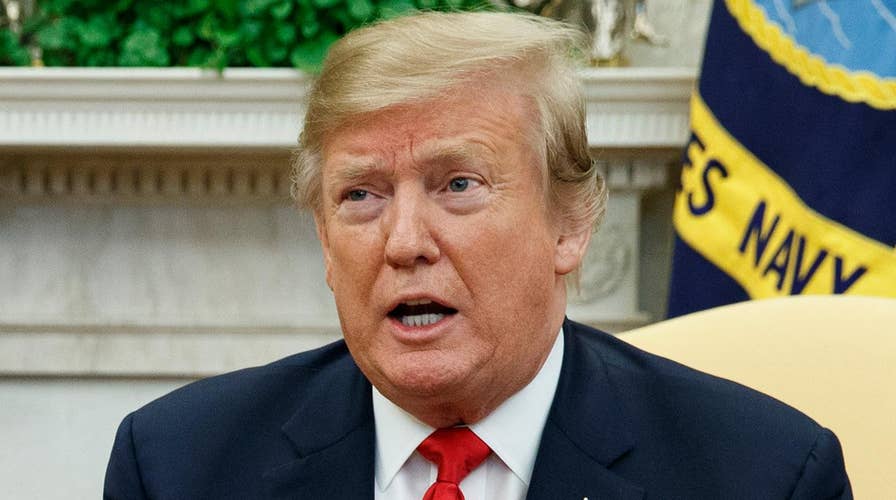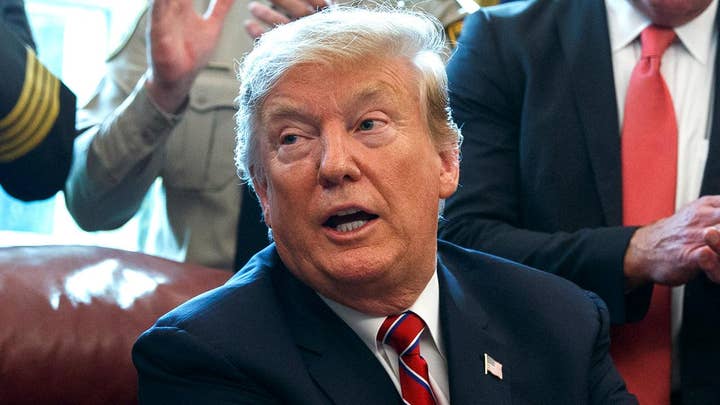For the third straight year, President Trump's budget request for the upcoming year calls for effectively defunding the Public Broadcasting Service (PBS), National Public Radio (NPR), and the National Endowment for the Arts (NEA) -- prompting a harsh rebuke from PBS' top executive, even as Congress again appears unwilling to agree to the White House proposal.
The full version of Trump's budget request, released on Monday, called for eliminating $435 million in funding from the Corporation for Public Broadcasting (CPB), the private nonprofit that serves as the government's investment vehicle for public broadcasting, and more than $120 million from the NEA.
The Trump administration called the move a plan to generate "major savings," including $48.8 billion in cuts for discretionary programs, and to reduce deficits by $2.7 trillion within the budget window. The proposal said arts funding was not among the "core Federal responsibilities," and argued that the federal government's money was not needed to keep PBS and NPR on the air.
PBS and NPR "primarily rely on private donations to fund their operations," according to the proposal. To conduct an "orderly transition away from Federal funding," the budget requested $30 million in 2020 and $30 million in 2021, which would include funding for personnel costs of $20 million; rental costs of $30 million; and other costs totaling $10 million.
"CPB provides grants to qualified public television and radio stations to be used at their discretion for purposes related to program production or acquisition, as well as for general operations. CPB also supports the production and acquisition of radio and television programs for national distribution," the budget proposal read.

PBS' long-running programs include "Sesame Street," with characters including Big Bird, seen here. (Getty Images, File)
It continued: "CPB funding comprises about 15 percent of the total amount spent on public broadcasting, with the remainder coming from non-Federal sources, with many large stations raising an even greater share. This private fundraising has proven durable, negating the need for continued Federal subsidies. Services such as PBS and NPR, which receive funding from CPB, could make up the shortfall by increasing revenues from corporate sponsors, foundations, and members. In addition, alternatives to PBS and NPR programming have grown substantially."
FLASHBACK: ELMO FROM 'SESAME STREET' LAMENTS POTENTIAL FIRING AFTER TRUMP'S 2017 BUDGET REQUEST
However, Congress seemed unlikely to respond to Trump's request. His similar efforts to defund NPR and PBS were ignored in 2017 and 2018, when Republicans controlled both the House and Senate.
PBS executives pointed to the longstanding support for the network from both Democrats and Republicans and said the federal funds helped ensure that rural areas would have access to broadcasts.
"Federal funding is critical for public television to do this essential work."
"PBS and our 350 member stations across the country have earned bipartisan Congressional support over the years due to the high value the American people place on the services we provide their communities," PBS President and CEO Paula Kerger said in a statement. "For a modest investment of about $1.35 per citizen per year, public television provides school readiness for children, support for teachers and caregivers, public safety communications and lifelong learning through high-quality content."
Kerger continued. "For the 16th year in a row, Americans named PBS and member stations #1 in public trust among nationally known institutions. The same survey revealed that Americans rank PBS and our member stations second only to the country’s military defense in terms of value for taxpayer dollars. PBS and its supporters across every region of the country will continue to remind legislators that federal funding is critical for public television to do this essential work."
In 2017, when Trump first moved to eliminate funding for public broadcasting, a viral video showed the lovable character Elmo from the PBS show "Sesame Street" reacting to his apparently imminent firing.
"Just like that? Elmo has been working at Sesame Street for 32 years!" Elmo said, before wondering what would happen to his health coverage due to a pre-existing condition.
Comedian Jimmy Kimmel, meanwhile, aired a video showing Trump on "Celebrity Apprentice" firing Big Bird, another prominent "Sesame Street" character.
Separately, Trump's 2020 budgets called for the elimination of several other programs and offices.
"The savings and reform proposals described in this volume continue, and expand on, the Administration’s efforts to put the taxpayers first," the proposal asserted.













































